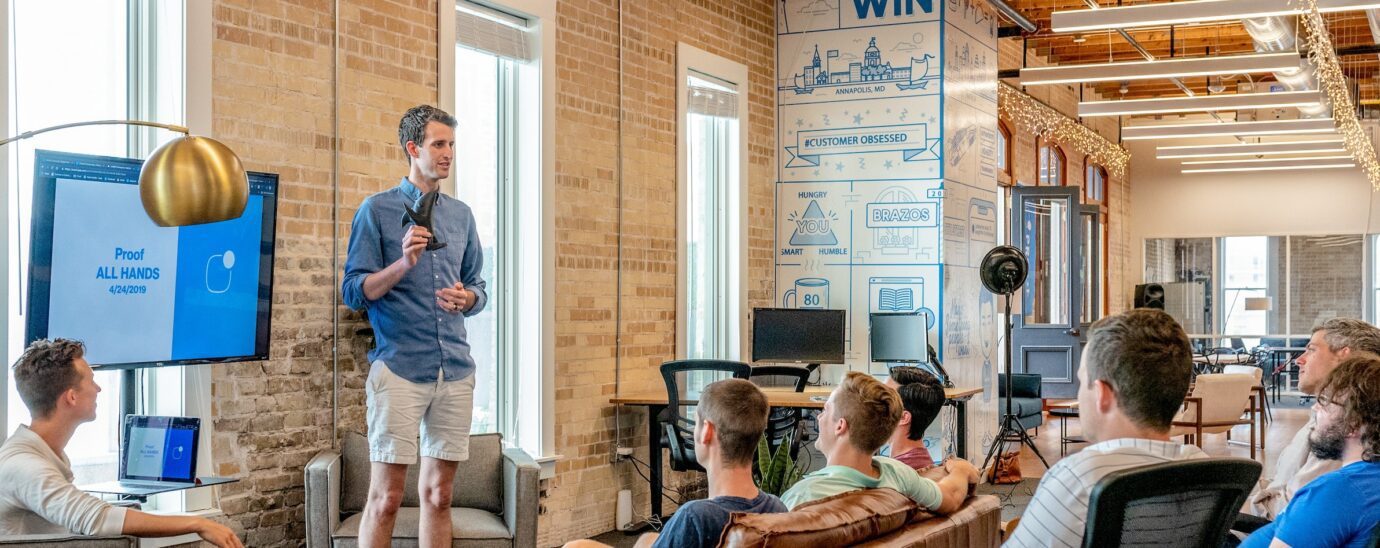Half of founders struggle to engage their communities

A community of peers, advisers, customers and investors isn’t just a nice-to-have: many entrepreneurs claim community is critical to growth. However, over half (55%) of Series A founders claim engaging contributors in their business is their biggest challenge, according to the latest research by Koos.io.
Almost two-thirds (64%) of Series A founders said that sharing their business success with those who contributed was key to their success and growth, while almost two-fifths (39.4%) recognised that building a loyal, supportive and engaged community of contributors was a contributing factor to helping their fundraising case. At the same time, three-fifths (60.6%) admitted that demonstrating their business’s growth and impact has been the most challenging aspect when fundraising.
The Estonian start-up, which helps companies turn their communities into co-owners by offering a new form of ownership, surveyed over 250 founders of UK firms of all sizes to identify the biggest challenges and key factors in growing their business.
The figures are backed up by recent research which found that 85% of businesses who are already building communities agree that community has had a positive impact on their objectives this year; that 86% see community as critical to their company’s mission; and that 69% planned to increase company investment in community in 2022.

The survey revealed that nearly half (43%) of Series A founders would be happy to provide financial incentives to business contributors if they helped them achieve their business goals. Moreover, when specifically asked whether they were comfortable giving out equity or financial rewards to their business contributors, founders were happy to consider offering equity to:
– Investors (51.2%)
– Customers and clients (43.9%)
– Independent contractors (43.1%)
– Wider professional network (37.4%)
– Gig economy workers (37.4%)
– Suppliers (35%)
At the bottom of the list were advisers and social media influencers, where 30.9% and 34.1% of founders, respectively, were less comfortable with offering equity.
Taavi Kotka, CEO and founder of Koos.io, explained: “Communities have always been an essential part of driving business growth and adoption. Most founders receive ad-hoc unpaid assistance in the formative stages of building their business, from friends, peers, and acquaintances willing to do odd jobs, make introductions or call in favours from across their networks to help give the company a leg up.
“That group, therefore, has huge potential to become impactful contributors to the business, especially if the business has the means to incentivise. However, this research demonstrates that founders are not properly joining up the dots between engaging their business contributors and the success they can achieve due to it.”
Kotka continued: “Currently, there are very few ways for founders to formally recognise the community’s contributions, let alone incentivise their sustained effort into the future. While shares and options can be powerful tools to encourage loyalty, these schemes are generally built around employees and investors. Neither can founders keep offering discounts or equity to keep their community engaged.
“This is where offering those in your community – from early adopters to influencers, freelancers to suppliers and clients – a stake in your business can be beneficial, because they have a motivating and energising effect, thus getting people properly invested in helping start-ups grow. They also demonstrate a business’s commitment to its community by building authentic relationships through stronger loyalty, more referrals, and higher trust. Ultimately, it simultaneously delivers growth and social impact, thus helping businesses to ‘scale with soul’ and give back as they grow.”
Social entrepreneur and community strategist Clare Sutcliffe MBE said: “As a community builder, I believe that community is most effective when deeply integrated into an organisation. When an organisation engages their community in all areas of its business, from operations to marketing and sales, they need to reward the community for that effort. Koos.io makes this process so easy by rewarding the time and effort of every individual that contributes to a business’s success. It’s exciting to see founders realise the massive benefits that incentivising and rewarding your community can bring to their business.”
Surprisingly, over a third (36.6%) of Series A founders feel that business contributors do not have a role to play in helping them achieve their business goals, which highlights the knowledge gap.
“Attempting to build a community is a costly business strategy, and not all founders recognise the benefits they can reap. The biggest challenge for founders may well be educating their communities about how reward schemes work and the value that participants stand to deliver – whether that’s in the near term or much further down the line,” concluded Kotka.
About Koos.io
Koos (pronounced ‘cause’ and Estonian for ‘together’ and ‘alongside’) was created to serve organisations committed to giving their contributors a true stake in their business. 86% of Fortune 500 companies report that communities provide insight into customer needs, yet when it comes to rewarding their contributions, communities never get a piece of the pie.
By setting shared goals, deciding the stakes and rewarding results – simply, legally and at scale – with Koos, a company gives its community a reason to advocate for them with fairer rewards which are paid out only when the company meets the predefined business goal.
Since Koos’ introduction to the market just a few months ago, 42 early adopter paying customers are running 54 programmes, including start-ups, NGOs, SMEs and larger corporations.
Koos was recently named The Big Bang of 2022 Winner at the Estonian Startup Awards.